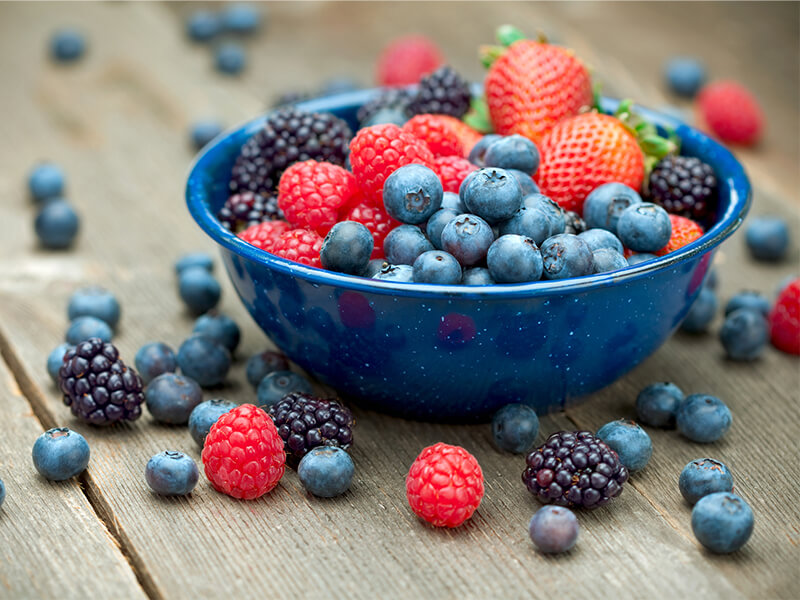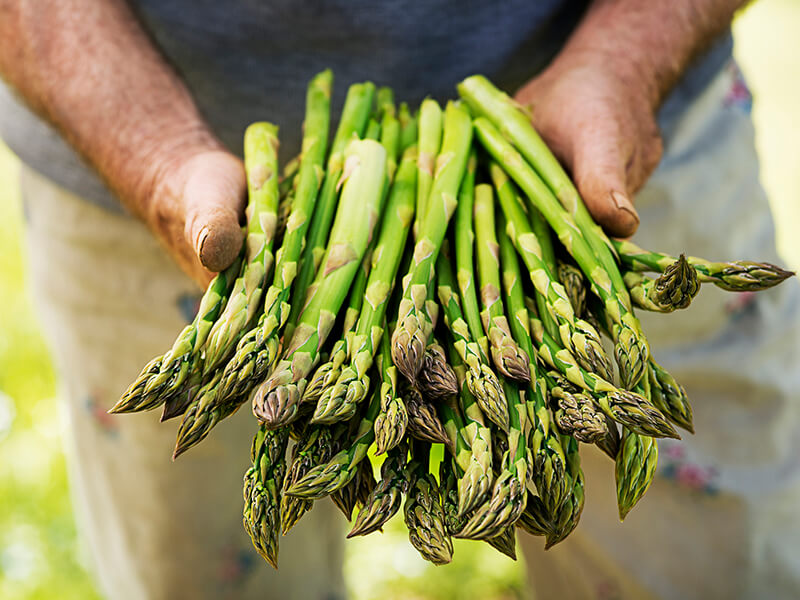15 fruits and veggies that are almost calorie-free
Fruit and veggies are miracle workers when it comes to health and wellbeing – and filling your plate with these low-calories goodies can help shred weight, too.
Eating more fruit and vegetables is the best path to weight loss, according the official Australian health guidelines.
But the types of produce you consume make a big difference, according to The Plant Potential founder and dietitian Jacob McGinness.
So, here are 15 low-calorie fruit and veggies that will help you get the most out of your diet.
Low-calorie fruits
Stone fruits
Summer brings a plethora of stone fruits that are a welcome alternative to the year-round fruit choices.
Encouragingly, Jacob says they also tend to have a lower sugar content and are smaller, providing a more bite-sized snack.
The average peach contains 51 calories, apricots 48 calories and nectarines 44 calories.
- Recipe: Moroccan Lamb Stew
Apples
Perfect for a snack on the go apples are low calorie but jam-packed with vitamins and minerals.
According to McGinness a large apple has 120 calories and 5.5 grams of fibre.
“Some studies have even been done to correlate apple consumption with better weight loss outcomes,” he says.
Grapefruit
Part of the citrus family, grapefruit is commonly associated with weight loss and dieting because it’s only 39 calories yet provides 65 per cent of the daily recommended intake of vitamin C. Better yet, red grapefruits are even more nutritious, containing 28 per cent of the daily recommended intake of vitamin A.
Passionfruit
Originating in South America, this 97-calorie fruit contains edible, pulpy goodness high in fiber, vitamin C, vitamin A, iron and potassium.
Kiwifruit
Another nutrient-dense option, kiwifruit packs a punch despite being only 61 calories.
The fruit is an excellent source of vitamin C, vitamin E, fiber and folate, and has also been linked to controlling blood sugar, improving cholesterol and supporting gut health.
- Recipe: Sally Obermeder’s Chia Kiwi Pops
Melon
These jumbo-sized fruits are rich in nutrients and have a high water content, yet provide a modest 46-61 calories.
Melons, which also include watermelon and honeydew variations, are rich in potassium, antioxidants, vitamin C, beta-carotene, lycopene and fiber.
- Recipe: Basil and Watermelon Granita
Berries
When it comes to healthy weight loss berries top the list of ingredients.
Not only are strawberries, blackberries and blueberries a naturally sweet treat, they are also full of antioxidants and heart-boosting properties.
Strawberries, blueberries and raspberries contain 33, 57 and 64 calories per 100g respectively.

Low-calorie vegetables
Cauliflower
This underrated kitchen staple is filling, but with only 25 calories per cup it is the ideal carbohydrate substitute.
“Blitzing cauliflower into a rice or mashed potato like consistency can create a tasty, nutritious, but lower-calorie side or base to a dish,” says Jacob.
Broccoli
Considered one of the most nutritious vegetables, broccoli is great for your waistline with only 34 calories per 100g.
And it is part of the Cruciferous vegetable family along with bok choy and Brussels sprouts, which studies have shown can help prevent cancer.
- Recipe: Roasted Broccoli and Almond Soup
Swedes
This root vegetable is like turnips and cabbage, but has only 53 calories per cup, making it a great alternative to starchy foods.
Jacob says swedes can be baked like potatoes, but with “only 40 per cent of the calories for the same weight of food”.
Celery
Touted as calorie-neutral because of its high water content, celery is one of the most popular choices for weight loss.
You can eat leaves and stalks raw in salads or cooked in a stew, with on average only 18 calories per cup.
But, Jacob warns if you are eating celery as a snack “go easy on the calorie dense hummus or peanut butter you might be dipping it in”.
Iceberg lettuce
A classic salad base for dieters the average iceberg lettuce contains just five calories per cup.
But it is not “nutrient dense” and can get boring, so Jacob recommends eating it in conjunction with other vegetables.
You can also substitute with spinach, rocket, and kale.

Asparagus
Not only is this spring vegetable low in calories (20 calories per 100g), it is filling, aids constipation and lowers cholesterol.
Asparagus can be blanched or fried as a side dish.
- Recipe: Asparagus and Tofu Spring Rolls
Beetroot
Dubbed as a superfood, this ruby red, earthy-flavoured vegetable has 59 calories per cup.
It also provides delicious taste and colour for salads, sandwiches, soups and baked goods.
Cucumber
At just 30 calories, cucumbers are a popular snack option due to their durable and portable nature.
Long, lean and green, cucumbers are technically a fruit but more widely considered a vegetable.
Native to India, they have a slight melon-like taste and are usually consumed with dip for added flavor.
High in vitamin K and vitamin A, potassium and vitamin C, cucumbers are about 95 per cent water.
Written by Alex White. Updated by Claire Burke June 2021.






